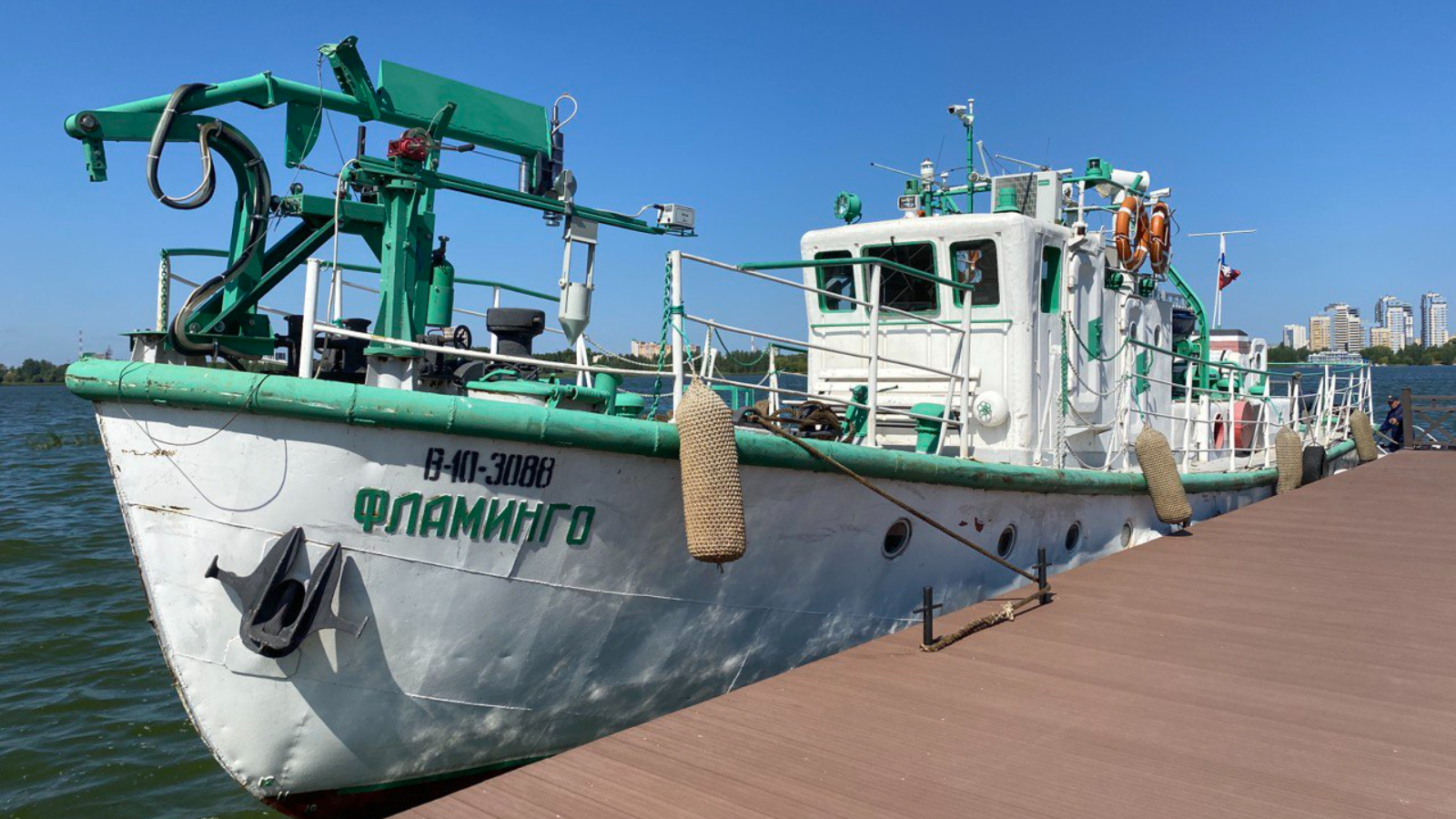16 journalists set sail today with environmentalists on the Flamingo ship

As part of a large press tour dedicated to the implementation of the national project "Ecology" in Tatarstan, journalists from regional and federal media went on a tour of the scientific research vessel of the Ministry of Ecology "Flamingo". This scientific station can conduct real-time water surface research and has the most powerful river floating laboratory. There are currently only 5 such vessels in Russia that are engaged in research activities.
The vessel underwent two deep upgrades in 2007 and in 2022.
As part of the upgrades, hardware and software were updated, and technical and analytical capabilities were expanded. Software and devices of the marine environmental protection complex of domestic production.
The complex of ecological and analytical control is designed for operational monitoring and control of surface natural waters, sampling of water and bottom soil, automatic detection of oil films on the water surface. The vessel is equipped with a system for monitoring the parameters of the aquatic environment, a complex of hydrochemical analysis, satellite navigation, video cameras that can record violations right on the move. Hydrochemical and hydrophysical indicators are recorded in real time with the construction of maps and their further analysis in the computing center.
In automatic continuous mode, measurements are carried out on 16 indicators: 8 hydrophysical - mass concentration of dissolved oxygen, hydrogen index, redox potential, temperature, UEP, turbidity, depth, oil film and 8 hydrochemical - nitrites, chlorides, sulfates, phosphates, petroleum products, phenol, iron, manganese.
Thus, a complete picture of the state of the aquatic environment is emerging in real time.
During the International Economic Forum "Russia — the Islamic World: KazanForum" and the BRICS Sports Games, the ship patrolled the waters of Kazanka.
In the navigation period of 2023 and 2024, 3 expeditions were carried out according to the Research Program developed by the Institute of Ecology and Subsoil Use Problems of the Academy of Sciences of the Republic of Tatarstan.
During the expeditions, an information database
on the hydrochemical and hydrophysical state of the Kuibyshev reservoir was collected. The analysis of the data showed a stable state of the waters of the studied sections of the Kuibyshev reservoir as a whole, revealed the presence of individual areas of minor local pollution caused by both natural and anthropogenic factors.